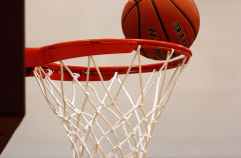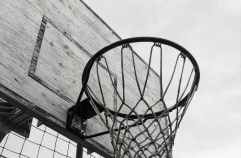I spoke with Wilmington High School coach Jessica Robinson about being a teacher and a coach in the same school. While Coach Robinson does not have any of her players in class, she still sees them and tells me the connection in school is different. In her opinion school administrators should aim to always hire people that work in the school to coach. It is much easier to keep tabs on the “student” part of student-athletes.
Enhances Student-Athletes Educational Outcomes
Ask your players if they enjoy reading Shakespeare, graphing quadratics, or trying to learn a foreign language. The answer is probably no followed by either a passionate complaint, a quick attempt to pivot the conversation, or the same body language you get after the ref makes a bad call against them. Most of them do not like the academic part of school. They value the long-term purpose of school and endure the boredom.
Some players genuinely struggle with motivation, learning, or both. Coaches often lose these players for huge chunks of the season because they lose academic eligibility. When the news that a player is academically ineligible reaches the coach, coaches are often surprised. Many coaches do check in verbally with students on how school is going. And most coaches out there agree that the academic piece trumps the athletic portion of the student-athlete equation. So how are coaches surprised when they are checking in?
Players probably are not going to offer up that they are failing a class. Even if they are failing, there is the hope that they climb back above water. In their eyes, as long as the end result is there the coach never knows about the initial struggles. The fear and embarrassment in telling the coach that they are failing is hard to overcome. As passionately as many of these players detest Shakespeare, they relish the opportunity to play basketball. Hiding academic information from the coach is often a means of doing just that.
Relationships with the Teachers
When the coach is a colleague of their players’ teachers, the student-athlete’s lack of transparency is much less of an issue. A coach can efficiently reach out to the teachers to let them know who is on the team and if behavioral or academic issues arise to reach out. Teachers feel comfortable letting a colleague know because they trust them as a coworker. They also have much easier access to one another given that they could bump into each other heading into school, at the a copy machine, or in the office. Coaches that do not work in the school have to consciously think to reach out and the teachers need to put in effort to respond. When they randomly bump into one another, none of that same conscious effort is required.
Coach Robinson said that occasionally there are those teachers that will claim the union is not mandating them to fill out extra paperwork on athletic progress reports. These types of teachers drive me nuts because most this type of paperwork can be done in five minutes. Nonetheless, in the same way you work with a player to establish relationships, you need to establish relationships with that teacher. The last thing you want is for your players to catch you complaining about a colleague because then the student-athletes have an excuse.
What to Do If You Don’t Teach in the School
I do not mean to suggest coaches cannot help their players be better students if they do not work in the school with them. I am suggesting that working in the school makes it easier. For coaches that are not in the school and want to help the student athlete’s improve, here are a couple suggestions.
Reach out to the Athletic Director
Ask the athletic director for the list of teachers for all student-athletes. Your athletic director will probably hate you for inconveniencing them and love you for taking the initiative to help student-athletes in academics. The ladder of these two will hold more water in the long term.
Reach out to all teachers.
As an eighth-grade teacher, I do not get enough emails from coaches, club coordinators, and extracurricular organizations. Seeing what my students do for after school activities provides me with an avenue for starting conversations and building relationships as a teacher. Additionally, if the occasion arises where their behavior or academic standing is slipping, I apply leverage. Often times I never need to reach out to the adult in charge, but the student knows that adult is going to act if I do. That is enough to light a fire for them to change.
Refrain from only asking about grades.
If you preach staying away from results as a basketball program, uphold that principle in how you view grades. Our school makes students fill out a progress report about grades, conduct, and effort. Teachers grade students on a 1 to 4 scale. I am more encouraged losing to an upper tier team by a couple points than beating a weak team by a couple points. Often times students are getting C’s with very little effort. That is more concerning than a player getting a D with high effort.
Bridge qualities of good players and students.
Constantly reinforce the message that academics matter to you. We always tell players that effort in the classroom translates to effort on the court. In the past we’ve had players list goals that relate basketball and academics. And it is not just something we say for public relations purposes. Coach Robinson told me that they will keep a player with high character, effort, and academic records over a player with more talent. Players need to know this too.
Do not rely on families to enforce academics.
Families often have great intentions, but often parents and guardians have greater problems than their child’s academics. It also might be the case that the parent or guardian did not have great success in school. They feel powerless to help their child because they struggled too. You are not overstepping your bounds trying to help your student-athletes get an education.



